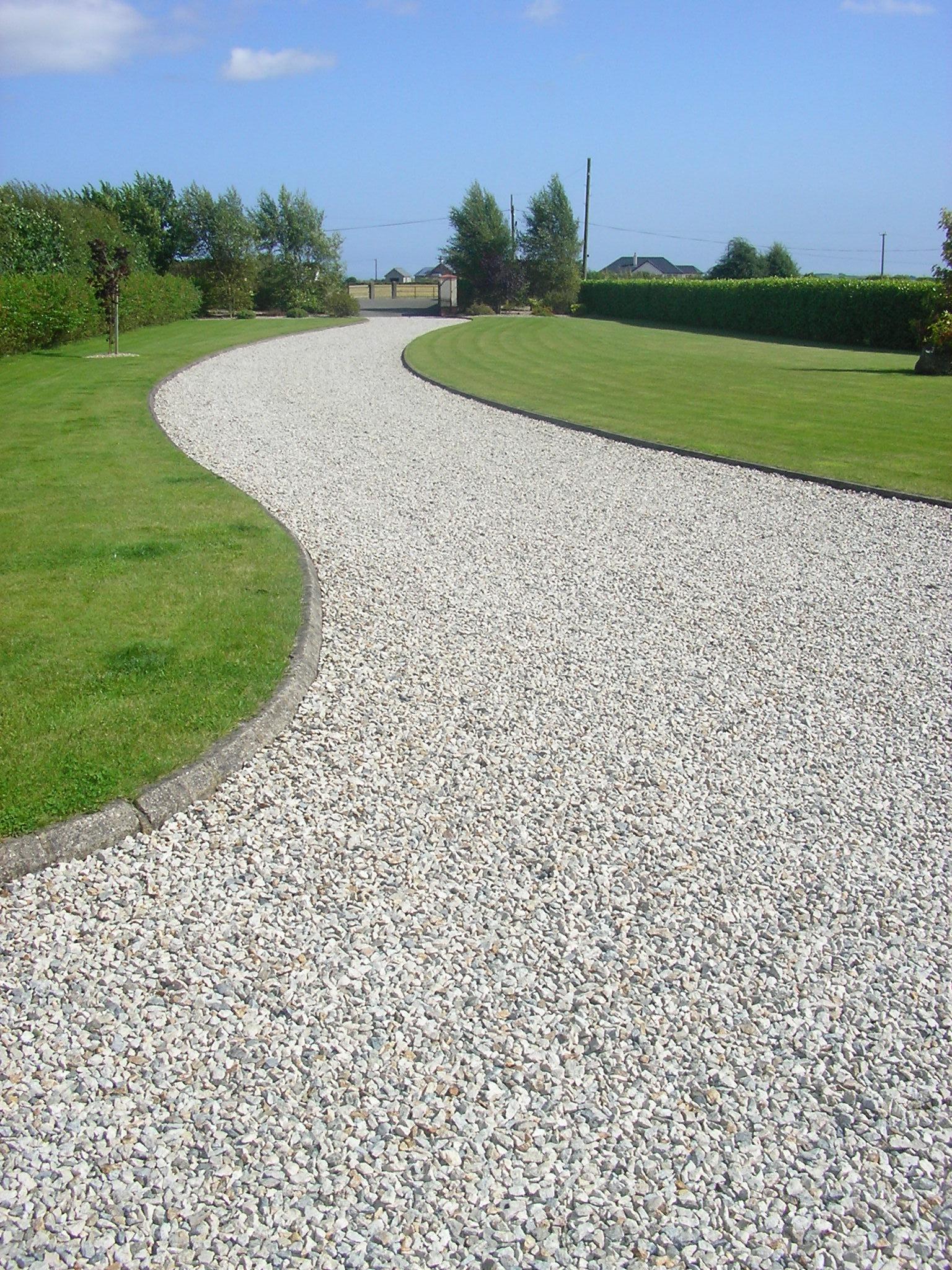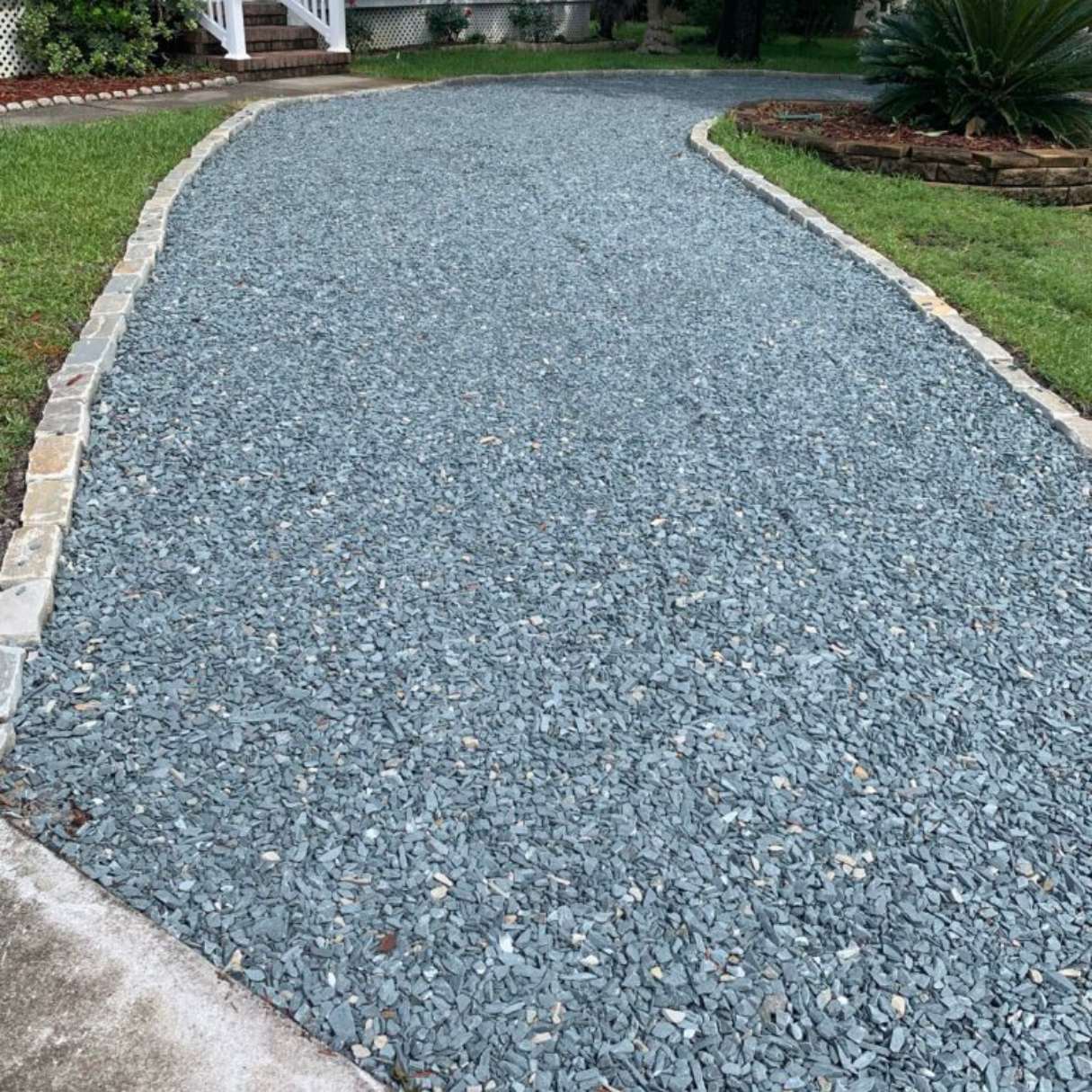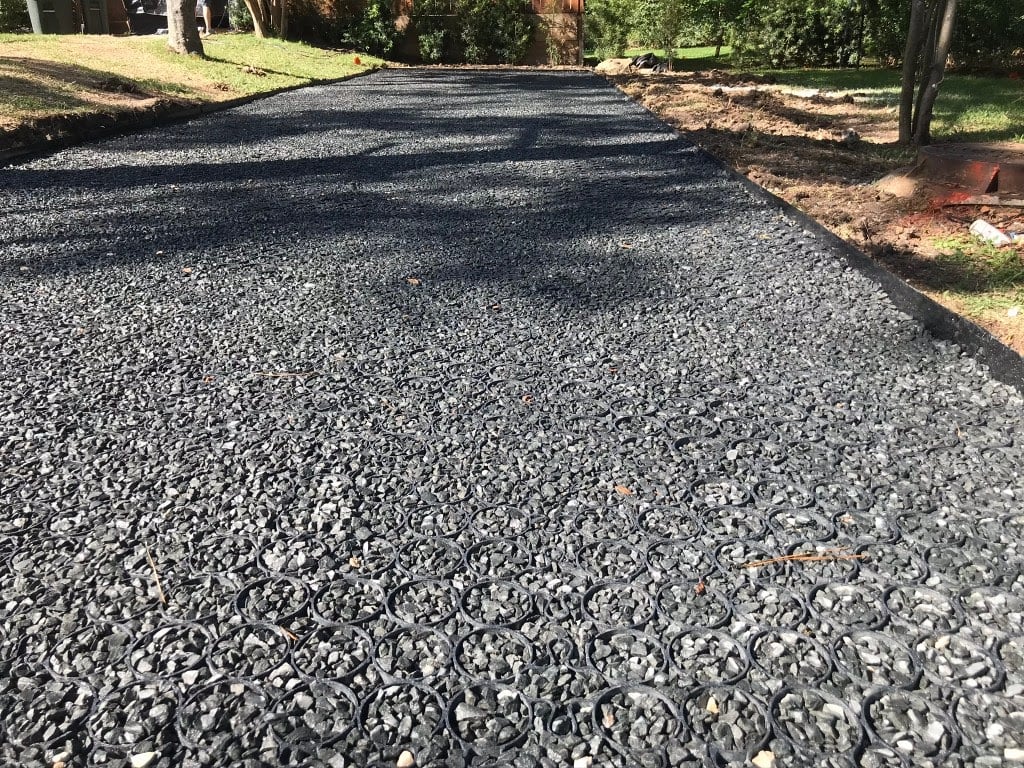Driveway Stone Servicesin Troy MI
Durable Driveway Stones for a Beautiful and Functional Entrance
We Are Locally Owned & Operated For Over 37 Years
Contact Us Today!
We Serve Businesses In And Around The Following Cities:
About Driveway Stone Services
Introduction to Driveway Stones
The beauty and functionality of commercial properties in Troy can vastly be improved with an impressive driveway. Central to creating an outstanding driveway that speaks volumes of your investment and sense of style are driveway stones. More than just the entry route to your property, driveway stones can transform the entire aesthetic appeal, making a bold statement about the property they lead to.
A crushed stone driveway can not only enhance the visual aesthetics of your commercial property but also bring forth notable practical benefits. Undoubtedly, the right selection of rocks on your driveway can be the game-changer in establishing an impressive and lasting first impression.
This comprehensive guide delves into the world of driveway stones, exploring the process of installation, real-world applications, and benefits for commercial properties. Highlights are included on D&J Contracting, a leading service provider in this realm, recognized for redefining properties throughout Troy with driveway stones installations. Buckle up and explore how stone driveways can graciously perk up your commercial property.
Types of Driveway Stones
Various types of driveway stones are available for commercial property owners in Troy, each bringing its unique charm and benefits. While aesthetic appeal guides some choices, others are influenced by longevity and maintenance requirements. Among these are crushed rock driveway and pebble driveway stones, both known for their distinct aesthetics and durability. Also popular is a crushed cement driveway, providing a smooth texture with a blend of robustness. The choice boils down to the specific requirements and personal preferences of a property owner.
Process of Installing a Driveway Stone
The installation process of a stone driveway is precise and requires expertise. It starts with site preparation, followed by driveway drain pipe installation to ensure proper water displacement. Subsequently, the driveway is layered with crushed aggregate, often mixed with clay or soil for stability. This also ensures your driveway isn’t just a temporary construction driveway, but a long-term addition to your property’s landscape.
D&J Contracting – who specializes in stone driveway installations in Troy – offers comprehensive support from the get-go. From consultation to determine the best rock for driveway near you through to the execution of the project, their services are extensive and customer-oriented.
Benefits of Driveway Stones
Driveway stones do not just boost the visual appeal of your property; they add substantial value. Here’s how:
The crushed stone driveway is durable and withstands extreme weather conditions, providing a much-needed characteristic for commercial properties that experience high traffic volumes.
A permeable driveway can manage rainfall effectively, minimizing the risk of flooding. Notably, permeable driveway contractors in Troy, such as D&J Contracting, can ensure optimal water management, consequently minimizing damage.
In addition, the maintenance of a stone driveway is relatively low. Unlike long dirt driveways that may require constant attention, a stone driveway makes it easier to control weed growth and maintain cleanliness.
Real-world Applications of Driveway Stones
Driveway stones have found extensive applications within a variety of commercial properties in Troy. From high-end resorts to large corporate complexes, these additions have shown to enhance the overall appeal and convenience of these establishments.
For instance, a popular restaurant in Troy recently installed a crushed rock driveway. Besides the aesthetic appeal, the driveway has dramatically improved ease of access to the property, enhancing customer experience substantially.
A local corporate building replaced their traditional paved driveway with a pebble driveway; this modernized the property’s look and eased the maintenance burden. D&J Contracting played a critical role in these transformations, embodying their expertise and dedication to quality.
Choosing the Right Driveway Stones Provider
As significant as the benefits and applications of driveway stones are, the success of the project ultimately hinges upon the right choice of the service provider. In this context, D&J Contracting has a proven track record in Troy for delivering exceptional quality and service.
Whether you need driveway fill near you or a complete transformation of your driveway into a piece of art, D&J Contracting delivers. Their keen and expert understanding of the local aesthetics and the specific needs of commercial properties uniquely positions them as a leading service provider.
In conclusion, the installation of driveway stones offers versatile potentials to create a compelling visual appeal and provide functional benefits for commercial property owners. With experienced and reliable contractors, such as D&J Contracting, it becomes more straightforward to transform your commercial property pathways with driveway stones and ensure they are more than just a temporary driveway for construction. Unlock the value today with quality driveway stones and professional installations.
Driveway Stone Services Gallery


Call Us Today to receive your Free Quote for
Driveway Stones in Troy
Serving: Troy, Michigan

About Troy, Michigan
The earliest recorded purchases of land in what was known as Troy Township occurred in 1819. A couple of years later, a settlement known as Troy Corners was established due to Johnson Niles buying 160 acres in the region. The area is currently the north-central area of Troy. In 1827 Troy Township was established. In 1955, Troy was officially incorporated primarily as a strategy for preventing border cities from taking more land. This also helped to establish more robust city services for Troy residents, whose numbers increased rapidly during this time due to Detroiters fleeing the city for the surrounding suburbs.
It was named after Troy, New York and the ancient city of Troy as many of the early settlers, as in much of Michigan, originated from New York.
According to the United States Census Bureau, the city has a total area of 33.64 square miles (87.13 km), of which 33.47 square miles (86.69 km) is land and 0.17 square miles (0.44 km) (0.51%) is water.
| Census | Pop. | Note | %± |
|---|---|---|---|
| 1960 | 19,402 | — | |
| 1970 | 39,419 | 103.2% | |
| 1980 | 67,102 | 70.2% | |
| 1990 | 72,884 | 8.6% | |
| 2000 | 80,959 | 11.1% | |
| 2010 | 80,980 | 0.0% | |
| 2020 | 87,294 | 7.8% | |
| 2023 (est.) | 87,339 | 0.1% | |
| U.S. Decennial Census 2018 Estimate |
|||
According to a 2018 estimate, the median income for a household in the city was $96,864, and the median income for a family was $113,640. Males had a median income of $72,005 versus $52,365 for females. The per capita income for the city was $46,664. About 5.1% of families and 7.2% of the population were below the poverty line, including 6.7% of those under age 18 and 6.1% of those age 65 or over.
As of the census of 2020, there were 87,294 people, 33,822 households, and 24,300 families living in the city. The population density was 2,609.9 inhabitants per square mile (1,007.7/km). There were 34,953 housing units at an average density of 1,044.9 inhabitants per square mile (403.4/km). The racial makeup of the city was 62.2% White, 4.0% African American, 0% Native American, 27.3% Asian, 1.2% from other races, and 5.1% from two or more races. Hispanic or Latino residents of any race were 2.2% of the population.
There were 33,822 households, of which 35.4% had children under the age of 18 living with them, 60.1% were married couples living together, 8.3% had a female householder with no husband present, 3.4% had a male householder with no wife present, and 28.2% were non-families. 23.2% of all households were made up of individuals, and 10.1% had someone living alone who was 65 years of age or older. The average household size was 2.56 and the average family size was 3.05.
The median age in the city was 43.9 years. 20.7% of residents were under the age of 18; 8.8% were between the ages of 18 and 24; 32% were from 25 to 44; 28.6% were from 45 to 64; and 19.7% were 65 years of age or older. The gender makeup of the city was 50.5% male and 49.5% female.
| Race / Ethnicity (NH = Non-Hispanic) | Pop 2000 | Pop 2010 | Pop 2020 | % 2000 | % 2010 | % 2020 |
|---|---|---|---|---|---|---|
| White alone (NH) | 65,809 | 58,869 | 53,793 | 81.29% | 72.70% | 61.62% |
| Black or African American alone (NH) | 1,678 | 3,210 | 3,422 | 2.07% | 3.96% | 3.92% |
| Native American or Alaska Native alone (NH) | 105 | 124 | 108 | 0.13% | 0.15% | 0.12% |
| Asian alone (NH) | 10,713 | 15,439 | 23,788 | 13.23% | 19.07% | 27.25% |
| Pacific Islander alone (NH) | 18 | 1 | 9 | 0.02% | 0.00% | 0.01% |
| Other race alone (NH) | 79 | 125 | 312 | 0.10% | 0.15% | 0.36% |
| Mixed race or Multiracial (NH) | 1,373 | 1,502 | 2,908 | 1.70% | 1.85% | 3.33% |
| Hispanic or Latino (any race) | 1,184 | 1,710 | 2,954 | 1.46% | 2.11% | 3.38% |
| Total | 80,959 | 80,980 | 87,294 | 100.00% | 100.00% | 100.00% |
As of the census of 2010, there were 80,980 people, 30,703 households, and 22,443 families living in the city. The population density was 2,419.5 inhabitants per square mile (934.2/km). There were 32,907 housing units at an average density of 983.2 per square mile (379.6/km). The racial makeup of the city was 74.1% White, 4.0% African American, 0.2% Native American, 19.1% Asian, 0.6% from other races, and 2.0% from two or more races. Hispanic or Latino residents of any race were 2.1% of the population.
There were 30,703 households, of which 34.7% had children under the age of 18 living with them, 62.8% were married couples living together, 7.3% had a female householder with no husband present, 3.0% had a male householder with no wife present, and 26.9% were non-families. 23.4% of all households were made up of individuals, and 9.6% had someone living alone who was 65 years of age or older. The average household size was 2.63 and the average family size was 3.14.
The median age in the city was 41.8 years. 23.8% of residents were under the age of 18; 6.7% were between the ages of 18 and 24; 24% were from 25 to 44; 31.6% were from 45 to 64; and 13.8% were 65 years of age or older. The gender makeup of the city was 49.3% male and 50.7% female.
From the census of 2000, there were 80,959 people, 30,018 households, and 21,883 families living in the city. The population density was 2,413.9 inhabitants per square mile (932.0/km). There were 30,872 housing units at an average density of 920.5 per square mile (355.4/km). The racial makeup of the city was 82.30% White, 2.09% African American, 0.15% Native American, 13.25% Asian, 0.02% Pacific Islander, 0.36% from other races, and 1.82% from two or more races. 1.46% of the population was Hispanic or Latino of any race.
There were 30,018 households, out of which 36.9% had children under the age of 18 living with them, 64.5% were married couples living together, 6.0% had a female householder with no husband present, and 27.1% were non-families. 22.8% of all households were made up of individuals, and 7.8% had someone living alone who was 65 years of age or older. The average household size was 2.69 and the average family size was 3.23.
In the city 26.2% of the population was under the age of 18, 6.7% from 18 to 24, 29.8% from 25 to 44, 27.1% from 45 to 64, and 10.2% who were 65 years of age or older. The median age was 38 years. For every 100 females, there were 98.1 males. For every 100 females age 18 and over, there were 94.8 males.
From 1990 to 2000, of all of the municipalities in Oakland, Wayne, and Macomb counties, Troy had the highest numeric growth in the Asian population. It had 4,932 Asians according to the 1990 U.S. Census and 10,730 according to the 2000 U.S. Census, an increase of 5,798. The increase gave Troy the largest Asian-American population in the tri-county area, surpassing that of Detroit.
Troy uses the council–manager form of government, and thus is governed by a city council consisting of a mayor and six council members. The current mayor is Ethan Baker, who was elected to a four-year term on November 5, 2019. The city council appoints a City Manager, who manages the day-to-day operations of the city.
The City of Troy and City of Clawson on its southern border compose Michigan’s 41st District for State Representative. The district is currently represented by Padma Kuppa in the State House since 2019, and in the state Senate by Mallory McMorrow, since 2019. The district was previously represented in the State House by Martin Howrylak since 2013, and in the state Senate by Marty Knollenberg, since 2015. On the national level, Troy was part of the 9th district, represented by Joe Knollenberg from 1993 to 2009 and Gary Peters, who defeated Knollenberg in a highly publicized race in November 2008. Nationally, Troy is part of the 11th district, held by Democrat Haley Stevens.
Troy is the location of Walsh College, a business school, as well as branches of the University of Phoenix, Northwood University, Central Michigan University, Spring Arbor University, International Academy of Design and Technology, and Michigan State University.
There are seven school districts serving Troy; however, Troy School District serves the majority of the city limits. The district has multiple elementary schools, four middle schools, and two zoned high schools: Troy High School and Athens High School.
Three school districts have sizable portions of territory in Troy and operate at least one elementary school within the city: Avondale School District, in the north and northwestmost portion of the city; Birmingham City School District, in the southwestmost portion; and Warren Consolidated Schools, in the southeast, which operates Susick Elementary within the city. In addition, two other school districts are located in part in Troy but have no schools within the city limits: Bloomfield Hills School District, with a portion of the northwest part of the city, and Royal Oak School District, which has a very small portion of the southern part of the city. Finally, a small area of commercial property also in the south lies within the borders of Lamphere Public Schools
The Troy School District also hosts the eastern campus of the International Academy. Private schools include Bethany Christian School, Brookfield Academy, Oakland Children’s Academy, St. Mark Christian Academy and Troy Adventist Academy.
Call Us Today to receive your Free Quote for
Driveway Stones in Troy
Related Services in Troy, Michigan
We Serve Businesses In The Following Zip Codes:
48007, 48015, 48021, 48026, 48035, 48036, 48038, 48042, 48043, 48044, 48045, 48046, 48047, 48048, 48050, 48051, 48066, 48071, 48080, 48081, 48082, 48083, 48084, 48085, 48088, 48089, 48090, 48091, 48092, 48093, 48098, 48099, 48225, 48230, 48236, 48310, 48311, 48312, 48313, 48314, 48315, 48316, 48317, 48318, 48397